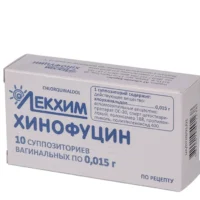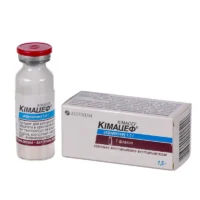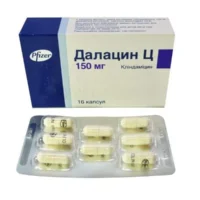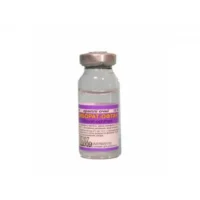Description
Enterofuril (Nifuroxazide) Capsules 200 mg. №16
Composition
Each capsule contains 200 mg of nifuroxazide.
Mechanism of Action
Nifuroxazide acts by inhibiting bacterial and protozoal enzymes, thereby reducing the severity and duration of diarrhea episodes.
Pharmacological Properties
Enterofuril contains nifuroxazide, a broad-spectrum antibiotic that targets pathogens causing infectious diarrhea.
Indications for Use
Enterofuril capsules are indicated for the treatment of acute diarrhea of infectious origin.
Contraindications
Avoid Enterofuril if you are allergic to nifuroxazide or any other ingredients in the capsules.
Side Effects
Enterofuril is generally well-tolerated, with minimal reported side effects. Some individuals may experience mild gastrointestinal discomfort. Discontinue use if adverse reactions occur.
Usage Instructions
The recommended dosage for adults and children over 12 years old is one capsule three times a day. Take the capsules with a full glass of water. Do not exceed the recommended dosage.
Benefits Compared to Analogues
Enterofuril offers effective treatment for infectious diarrhea with a well-established safety profile and minimal side effects compared to other antibiotics.
Suitable Patient Groups
Enterofuril is suitable for adults and children over 12 years old. Consult a healthcare provider for appropriate dosing in specific patient populations.
Storage and Shelf Life
Store Enterofuril in a cool, dry place away from direct sunlight. Check the expiration date on the packaging and do not use after the stated shelf life.
Packaging Description
Enterofuril is available in packages containing 16 capsules of 200 mg each.
Clinical Evidence and Proven Effectiveness
Nifuroxazide, the active ingredient in Enterofuril, has demonstrated efficacy in treating infectious diarrhea by inhibiting bacterial and protozoal enzymes. Clinical studies have shown positive outcomes in reducing diarrhea severity and duration.





